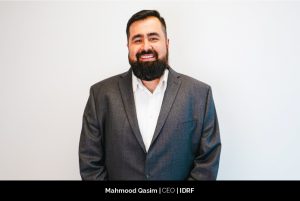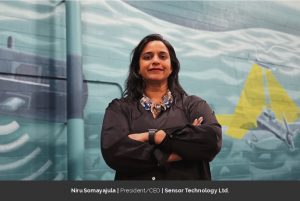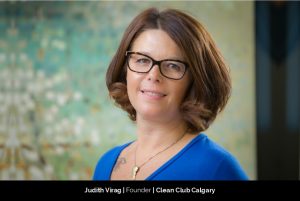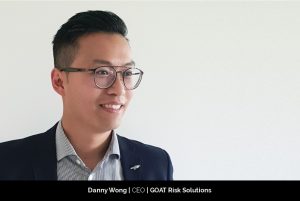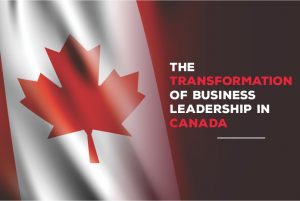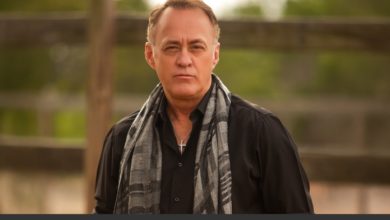Vafa Akhavan: A Courageous, Purpose-Driven Leader Facilitating Access to Tertiary Pediatric Care
Top 10 Most Influential Canadian Professionals in 2023
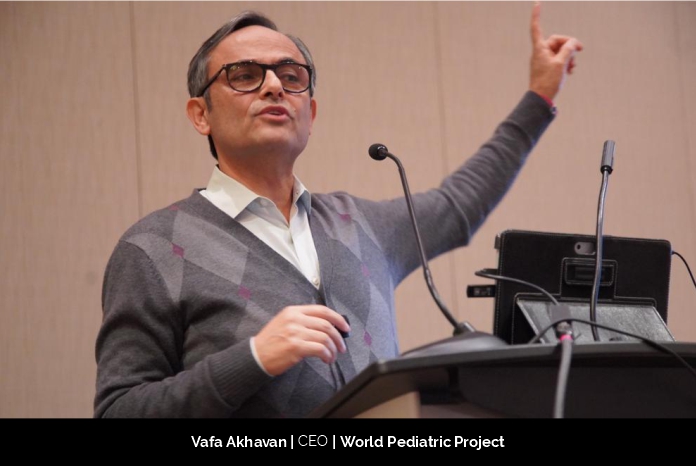
As CEO of the World Pediatric Project (WPP), a non-profit
working in tertiary pediatric surgery, Vafa Akhavan believes that a leader’s
greatest achievement is to elevate the human condition. He seeks to
purposefully and meaningfully address what he deems to be the greatest
strategic imperative – transforming the lives of children who will become
tomorrow’s decision-makers.
“Children will grow up to become future attorneys, partners,
spouses, politicians, plumbers, doctors, mothers, fathers, electricians, bridge
builders, poets, painters, etc. It is the aggregate outcomes of their thoughts,
words, deeds, and decisions that ultimately reflects the society we have and
aspire to become,” Vafa maintains.
Children Are Our
Future
Children are 30 percent of our population, but 100 percent
of our future. 1.7 billion under-19s, including 450 million under five, lack
safe surgery. 17 million die annually from that lack of access, five times more
than from HIV, TB, and Malaria. WPP cares for and empowers today’s children who
are tomorrow’s adults. For example, Claudia lived in a remote mountainous
region in Honduras and suffered from multiple issues including scoliosis and
deformed legs and hands. It was through WPP’s work that she was able to undergo
open heart surgery, scoliosis surgery, and receive prothetic legs. It was
through WPP’s efforts that she went back to school, which caused her to finally
smile again.
Vafa’s current role allows him to leverage the resources
he’s acquired over his career to have the greatest impact on the lives of
children in the shortest amount of time possible. He is leading a whole-system
organizational realigning to improve the lives of the most vulnerable children.
He’s transforming a mission-driven organization into one that improves the
human condition through sustainable tertiary pediatric care. Capacity building
is being accelerated for a segment that’s often overlooked and neglected
because caring for extreme cases is typically the most complicated task.
Children Are the
Channel to Elevate the Human Condition
Vafa’s life pre-WPP was a journey of exploration, discovery,
and learning, which he considers a great blessing. He’s worked with startups,
mid-caps, large-caps, young entrepreneurs, and the C-suite of conglomerates.
“Half of my career was in the consulting space, and half in corporate operating
roles. The blessing is in a great treasury of learning, which continues to
grow. The common thread and narrative are a passion for curiosity, learning new
things, solving different problems, and creating change for the good,” he
remarks.
Vafa has worked in seven industries and 15 countries with 10
companies, some sister or acquired. His leadership roles included retail auto,
film finance (where he led clearing one of the first Canadian film industry
IPOs), consulting, notably at J.D. Power, then at McGraw Hill’s Information
& Media segment after it acquired J.D. Power, back to consulting as CEO of
Forum (now Achieve Forum, acquired by Korn Ferry), Executive Board member at
SwissVBS (now part of BTS), L&D, and others. Most recently, he led
NueBridge, a boutique and innovative consulting firm that worked at the
crossroads of management consulting and an operating executive expert network.
Ten years ago, Vafa began to reflect on and articulate his
core competencies and capabilities, which included being versatile and
resilient in change management, seeing patterns and connections that others
didn’t or couldn’t, and exercising discernment enabled by the diversity and
complexity of his experiences. “When you converge these capacities, you can
access a powerful tool to see the essence of the issue, the path, and the end,
typically before anyone else. If it’s wrong, you can decide to change sooner
than anyone. If it’s right, you can fuel to accelerate before anyone. There is
no end to the journey. I’m still on this
journey and working to get better,” he clarifies.
Four years ago, Vafa contemplated the next phase of his
career. He had worked in the for-profit world for decades, watching the
emergence of social impact. He considered how much runway he had left and where
to focus for maximum impact. “I remembered the love and passion bred in me for
children by my Baha’i Faith and solidified by the example of my father. I
realized that the cause of children must become the strategic imperative of
every generation. That’s the channel through which we can sustain the
transformation of the world we live in and elevate and ever advancing human
condition,” he observes.
“O Son of Man! Bestow my wealth upon my poor, that in
Heaven thou mayest draw from stores of unfading splendor and treasures of
imperishable glory.” – Baha’u’llah, from
the Baha’i Writings
How WPP is Enabling
Access to Specialized Pediatric Care
The core values of WPP are Agility, Commitment to quality,
Collaboration, Critical thinking, and Trustworthiness. WPP has developed
diverse collaborations and program interventions throughout the Caribbean and
Latin America with different approaches to closing the gap in pediatric
surgical access. They facilitate surgical teams to deliver much-needed
immediate pediatric surgical care; work alongside and train local surgeons,
sponsor treatments in collaboration with skilled local providers to treat
low-income patients in well-equipped facilities; procure and donate high-cost
surgical supplies; and promote and facilitate mentorship relationships between
surgeons from the US with Latin America and the Caribbean. Between 2002 and
2019, WPP added 5,800 DALYs (disability-adjusted life years) to St. Vincent
alone, according to a British Medical Journal published research paper by the
College of William & Mary.
Using approaches tailored to the unique needs of the region
and its regional partners, WPP seeks to increase immediate access to
specialized pediatric care and create capacity building opportunities for local
providers. A recent team to St. Lucia had 12 surgeons, anesthesiologists, and
nurses participating from across the Caribbean.
WPP has changed its organizational structure, decentralizing
programs, financials, and human and financial resource management to the
regions. A core component of WPP’s future proofing is to be community-driven,
so planning, monitoring, reporting, KPIs, and benchmarks have all been transformed
to support the new purpose, organizational structure, and operating model. It
is evolving from the steppingstone of success to the foundations of
significance for increasing impact that encompasses a two-track approach.
WPP will continue with its core activities while growing its
commitment to a second track focusing on capacity building. Every activity has
a training, learning, and development component. WPP has added new lines of
action and established a global health function, such as NICU training and
development to reduce neonatal mortality.
Every year 2.5 million babies die during the neonatal period. This
translates to 180 million years of life being lost each year. A new department
was created for Emerging Opportunities, its innovation lab supporting pilot
programs in St. Lucia and Honduras for using technology to scale surgical
training.
WPP is partnering with regional resources and institutions
for design and delivery. It partners with hospitals in a consultative role to
improve capacity building and utilization, works with government entities to
provide thought leadership around policy, and through its Observer status will
contribute to pan-Caribbean NGO initiatives focused on a united approach to a
Caribbean model, as compared to a disparate model of resource allocation.
Another line of action addresses preventative strategies,
such as coordinating the cross-stakeholder approach to introduce folic acid
into the diet of Belize to prevent spina bifida at the root.
Vafa’s plans for the future of WPP are driven by its
clearly-defined purpose, which encompasses everything it will do in the first
three-year phase of the second cycle of 10 years, from expanding their role in
direct care, capacity building, and sustainability, to pediatric health system
transformation, growing the ecosystem, partnerships, and working towards
developing a knowledge center.
A
Courageous Leader Who Puts Purpose Front and Center
Vafa’s
primary responsibility at WPP is to be a conductor and an effective situational
leader. He spends much of his day orchestrating and providing input for
team-making decisions with strategy, operations, and financial management. With
the accelerating pace of change and quickly changing situations, he knows that
different situations require different leadership approaches and that his
responsibility is to use the right approach in each situation.
“I must be thoughtful
about how the team plays together, and that the relationship between team
members ends up with an outcome that impacts the lives of children, families,
and communities,” he reflects. Vafa insists that a leader must put purpose
front and center, that it is clearly articulated, and show how everyone’s
actions link directly to outcomes, and purpose.
A significant portion of WPP’s communications tell the
stories of how the children’s lives change, which brings to life what they do,
and are expressions of their purpose. Vafa regularly links the discussion to
WPP’s three primary goals: Ensuring more children have access to safe tertiary
surgical care; reducing the time it takes to get that care; and increasing the
impact on the lives of children, families, and communities.
“Everything has to lead here, to impact these KPIs,” he
insists. “I travel to the regions regularly to meet with the children and their
families at their homes and go to the hospitals and clinics to listen to
stories and learn about the needs. This work must be personal. It must hit you
in your gut and move your heart and soul. It doesn’t debilitate you. It fuels
you. It motivates you. It inspires you.”
Turning Challenges
into Leadership Lessons
Vafa points out that challenges do not make you stronger,
it’s how you approach the challenge, what you learn, and how you apply those
lessons to your life that make you stronger. Regardless of the outcome,
incorporating lessons into your life will strengthen you to overcome obstacles
and achieve your goals.
“I met the CEO of Atomic Energy Canada early in my career.
When I entered his office, his face was unforgettable. It read, who is this kid
and why is he here? He probably expected someone older. He was rather
dismissive. Being unprepared didn’t
help. I felt awkward and humiliated. A few years later, in 1989, I cold-called
Ron Osborne, CEO of McLean Hunter (for those in Canada old enough to remember),
one of the largest communications companies in Canada at the time, to discuss
opportunities in China, the mother of all markets. We met twice. He told me
that he was intrigued by my approach and the content of the pitch,” Vafa
recalls.
He explains that the former incident taught him about
homework, preparation, and anticipating questions and issues, while the latter
taught him the value of patience and timing. “I learned patience and
preparation early in my career. Patience took longer than preparation and
improved more due to age and wisdom than design. The right amount of impatience is good. It
creates a sense of urgency and can boost morale if managed well.
Vafa notes that different situations require different
leaders, and being too far ahead or behind is not ideal. The best leader is
just ahead of the curve. As an example, when he was at J.D. Power, he knew what
T-Mobile needed to improve customer experience, but had to wait a year to
present the case to the COO, who liked it and hired J. D. Power for the work.
His greatest leadership lesson though was from his father,
which was an insight gained from observing the kind of life his father led.
While his father did not have direct reports, or hold fancy titles, rank or
position in marquee brands, the outcomes of his work serve as a repository of
impact. He was an expert in Middle East affairs and the energy sector.
Vafa notes that this lesson lies at the heart of leadership
and is the cornerstone of that never-ending journey, filled with trials and
tribulations, to becoming a great leader. “Leadership is a state of being, a
condition that has no boundaries of time or space,” he states. “Continuous
curiosity, learning and improvement should be a priority for leaders.”
“Don’t ask a fish to climb a ladder. You’ll be
disappointed.” – Albert Einstein
Leadership Success is
Measured by Your Impact
Vafa insists that none of his success would have been
possible without the support, wise counsel, tolerance, embrace, understanding,
challenge, encouragement, and caution of his loving family. “Without my family,
especially my wife, I could not have had the impact I’ve been able to generate,
helping the lives of the most vulnerable children to transform families and
communities,” he reflects.
Vafa focuses more on setting priorities than practicing a
hard line in work-life balance. His personal life revolves around his family
and he chooses to be accessible and responsive in his personal life. “It
doesn’t matter if I’m in Singapore and my wife calls me from Toronto at two
a.m. I need to be accessible and responsive notably to my immediate family,
even if I’m sitting in a C-suite meeting. If my daughters text me with a 911,
I’ll walk out and call. If I get a simple text message that I can’t respond,
I’ll call them back when I’m out of the meeting. If my mother calls, I’ll take
the call no matter what, because she’s over 90, and ask if it’s important or if
it can wait,” he elaborates.
Vafa notes that in leadership positions, it’s increasingly
difficult to carve hard lines between work and life, especially with the
convergence of personal and professional lives in the hybrid work model. The
guiding principles for finding balance in the new world of hybrid and
unanticipated change are common understanding, deciding consciously and
intentionally to behave in a certain way in the context of work-life balance,
and being open to change in one’s life instead of a dogmatic definition of what
life should always be.
Vafa notes that success in the general society is usually
defined by one’s rank, revenues, employees, etc. How big is your company,
compensation, car, home, second home, plane? Did you publish any books or
contribute to major publications? Do you speak often, and have tens of
thousands of social media followers, likes, comments, and reposts? These are
the commonly accepted indicators of success.
“Throughout my career, these were the accepted success
standards. I always thought these were more superficial than substantive for
future leaders. It wasn’t until I heard Clayton Christenson from HBS talk about
the true value of a person, that I recognized his definition as my ideal of
success as a leader – the extent to which you impact the lives of others with
the resources you’ve been given,” Vafa states.
“We cannot seek achievement for ourselves and forget
about progress and prosperity for our community.” – Cesar Chavez
He believes that while leaders must evaluate their
achievements, including innovative strategies, inventive operating models,
world-class teams, and other key performance indicators that lead to outcome
metrics like sales growth, profitability, EPS, first-to-market, or free cash,
they must also foster excellence in all areas, ensure the ideal environment,
the right talent and influence transformation by facilitating a change in
belief-systems, values, and mindset.
Be Authentic &
Live Your Life with Purpose
Vafa shares some profound advice for aspiring leaders,
namely that leadership is not a function of hierarchy. It is not defined by
rank or position and does not depend on your titles or responsibilities. It
doesn’t have boundaries.
“Your leadership legacy is the aggregate of the outcomes
from all your professional decisions. Successful leaders have a belief and
value system that guides their every action. Leaders succeed when their values,
beliefs, and actions are consistent and and their coherence maps to their
impact on others with the resources they have.
“At a practical level, leadership is about creating the
environment for excellence to emerge, through facilitating purpose, strategy,
culture, operations, gathering the right team, and then engineering design and
execution, bolstered by engagement and inclusivity of stakeholders and the
ecosystem. The leader is not the one who ‘does’, but rather enables, empowers,
and facilitates the emergence of excellence.
“Develop the capacity to be situational, as the pace of
change is accelerating faster than the capacity of most organizations to
anticipate or respond. This requires agility and constructive resilience. Be
clear about how you need to lead in that situation. Learn what combination of experiences will
best help you develop those capacities.”
“Know who you want to be as a person, a human being, and
leader. Know your core beliefs and values, like integrity, trustworthiness, and
empathy. Be who you are and express your viewpoint, recognize when you don’t
know, be humble and vulnerable, own your mistakes, apologize sincerely, try new
and different things, shed preconceived notions, and pursue excellence.”
“Live every aspect and dimension of your life with purpose,
in a way that reflects your beliefs and values. Manifest it with your thoughts,
words, and deeds. Demonstrate through personal behavior. Be genuine and
authentic. Show true reverence and vulnerability in what you do and how you do
it. Share knowledge, insight, and foresight. Make things relevant and link them
to outcomes.”
“Shed all forms of prejudice, all preconceived notions. Live
your convictions. Always be curious, dare to be bold. Have the courage to fail.
Be the source of unity and the cause for elevating the human condition.”





